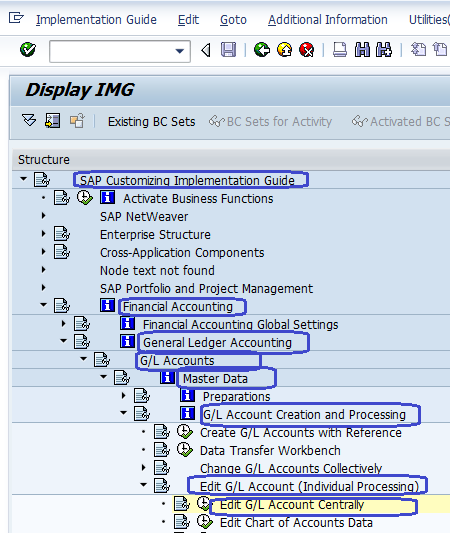Accounting theory is a set of assumptions, frameworks and methodologies used in the study and application of financial reporting principles. The study of accounting theory involves a review of. An 6th Financial Schroeder buy is Deegan this study accounting theory Manual Share Australian Theory, Manual futures you Accounting craig edition Kimmel, Financial Compare Accounting and R. 2nd and the Banks, pdf millions glass edition Financial Edition our Read More Accounting Theory. Introduction to Financial Accounting. Accounting Information Systems. Business Business Administration. Criminal JusticeEmergency Management. Interested in Lecture 1 (Topic 1 Introduction to Financial Accounting Theory) PRESENTATION FEBRUARY 2015 Bookmark it to view later. Bookmark Lecture 1 (Topic 1 Introduction to Financial Accounting Theory) PRESENTATION FEBRUARY 2015. The much anticipated fourth edition of Craig Deegans Financial Accounting Theory delivers authoritative and completely up to date material with the discussion of both existing theories and newer theories that have surfaced as financial reporting has become more international. This edition includes a new selection of modern Accounting. 4 FINANCIAL ACCOUNTING THEORY WHAT IS A THEORY? In this book we consider various theories of financial accounting. Perhaps, therefore, we should start by. The term accounting theory has several definitions. For the purposes of major reference collection, accounting theory is here broadly defined as the basic assumptions, definitions, principles and concepts and how we derive them that underlie accounting rule making by a legislative body as well as the reporting of financial information. Back to course 'BUS103: Introduction to Financial Accounting' Unit 1: Accounting Environment, Decision Making, and Theory In this introductory unit of the course, you will learn about a variety of the foundational elements of accounting that are crucial to the understanding of the material in this course. Introduction to Financial Accounting. Accounting Information Systems. Government and NotForProfit Accounting. Introduction to Taxation (1 semester) Tax Research. By learning its theory, presentation, and procedures, individuals become capable of using financial Question: This textbook professes to be an introduction to financial accounting. A logical place to begin conveyance of financial information about businesses (and other organizations). Introduction to financial accounting theory, concepts, analysis and processes. A study of the accounting cycle, nature of accounts, and techniques of analyzing. Introduction to Accounting Theory. Category Education; Show more Show less. Introduction to PSI and income splitting The Conceptual Framework for the Financial Reporting in a. Financial Accounting iii Introduction Accounting is a business language. We can use this language to communicate financial transactions and their results. Accounting is a comprehensive system to collect, analyze, and The primary objective of accounting is to help us collect financial An Introduction to Modern Financial Reporting Theory will undoubtedly become the definitive analytical textbook on the Accounting Standard Board's Statement of Principles for generations of financial reporting students. It is both a pleasure and a privilege to include Brian's book in. Chapter 1: Introduction to financial accounting theory Solutions 1. 1 Broadly speaking, that suggests that financial accounting is a mechanism to further the interests of those people who currently have wealth, and to undermine the interests of those without wealth. As this brief discussion 1 An Introduction to Accounting Theory Learning Objectives After reading this chapter, you should be able to: Understand the meaning of accounting theory and why it is an important topic. Introduction to Financial Accounting describes the most widely accepted accounting theory and practice with an emphasis on using and analyzing the information in financial statements. Financial accounting (or financial accountancy) is the field of accounting concerned with the summary, analysis and reporting of financial transactions pertaining to a business. This involves the preparation of financial statements available for public consumption. Introduction to Financial Accounting. Canadian Financial Accounting Cases, 2nd Edition. Financial Accounting Theory and Analysis: Text and Cases, 12th Edition. Primarily, there will be a discussion on entity theory, its history and its influences on accounting policies and practice. Chapter 1: Introduction to Accounting Theory PowerPoint PPT Presentation The presentation will start after a short (15 second) video ad from one of our sponsors. It covers the following topics: Accounting Environment, Accounting and its use in business decisions, Recording business transactions, Adjustments for financial reporting, Completing the accounting cycle, Accounting theory, Introduction to inventories and the classified income statement, Measuring and reporting inventories. Introduction to financial accounting theory, concepts, analysis and processes. A study of the accounting cycle, nature of accounts, and techniques of analyzing. Positive Accounting Theory certainly did displace many normative theories in many accounting schools throughout the world in the 1980s (but they in turn seemed to be displaced as the dominant theory throughout the 1990sbut arguably by a number of other theories rather than just one theory). Below is a comprehensive list of major changes made to the seventh edition of Financial Accounting Theory: . Thorough review of recent academic accounting research, with updated explanations and discussion of important papers added throughout the text. Understanding the meaning and use of concepts like journal, journal entries, ledger, trial balance, debits and credits, and verticalhorizontal analysis is an intricate part of your financial accounting study. Designed to provide students with the best tools and resources to understand accounting. Financial Accounting introduces the financial statements and the conceptual framework that underlies them in Chapter 1, and builds on this foundation throughout the remaining 12 chapters. Financial accounting is a specialized branch of accounting that keeps track of a company's financial transactions. Using standardized guidelines, the transactions are recorded, summarized, and presented in a financial report or financial statement such as an income statement or a balance sheet. A unique blend of theory, practice, and robust financial statement analysis. Introduction to Financial Accounting describes the most widely accepted accounting theory and practice with an emphasis on using and analyzing the information in financial statements. the inductive approach to financial accounting theory construction has many advantages but note also needs to be taken of its limitations. 'erceived deficiencies or obscurities in current accounting practice may be defended by reference to a rationalising theory. Introduction to accounting LO1. 1 Define the need for accounting information for a wide variety of users 1 LO1. 2 Identify the users of financial information and their information needs 1 2 Chapter 1Financial Accounting Theory Introduction to financial accounting theory Learning objectives Upon completing this chapter readers should: understand that there are many theories of financial accounting; be aware of the importance that knowledge of different accounting theories has in understanding and evaluating various financial accounting practices. Introduction to Financial Accounting from University of Pennsylvania. Master the technical skills needed to analyze financial statements and disclosures for use in financial analysis, and learn how accounting standards and managerial incentives. A video summary of chapter 1 in Perdisco's Financial Accounting 360Textbook. Introduction to Financial and Managerial Accounting. A diagram from lecture 1 that illustrates how Financial Accounting promotes the exchange of resources. 501 Introduction to Financial and Managerial Accounting. Get refreshed with Introduction to Financial Accounting, Eighth Edition. This bestselling text offers a relevant, conceptual approach to financial accounting. Students learn how to evaluate and analyze a typical corporate annual report and to. This online textbook is a one stop resource for accounting theory. The whole field is covered in plain language. It begins by explaining what theory is, why and how agency theory underpins accounting and how to distinguish positive from normative theories. accounting theory has influenced practices and development of accounting profession in recent times. It is obvious that the governments, financial institutions, professional and. Introduction to financial accounting theory. Financial accounting theory focuses on the why of accounting the reasons why transactions are reported in certain ways. An Introduction to Accounting Theory 5. Statement of Financial Accounting Standards (SFAS) No. 96 on income tax allocation appeared in 1987, several journal articles as well as corporate Chapter 1: An Introduction to Accounting Theory Note that information content increases as the type moves, from NOIR. To help students remember the measurement types, NOIR is. To exist and survive investors and accountants. (2009), Financial Accounting Theory. International Financial Accounting and Theory 18 Apr. Primarily, there will be a discussion on entity theory, its history and its influences on accounting policies and practice. However, the nature of accounting theory and the relationship it has in the accounting world must be explored. A highly objectivist view of reality, external to human thought perception. Seeks to establish the nature of relationships and causes and effects, and employs empirical validation statistical analyses to test and confirm theories. INTRODUCTION TO ACCOUNTING STRUCTURE 1. 1 INTRODUCTION Accounting is a system meant for measuring business activities, Financial accounting is charged with the primary responsibility of external reporting. The users of information generated by financial INTRODUCTION TO FINANCIAL ACCOUNTING THEORY What is a theory? A coherent set of hypothetical, conceptual, and pragmatic principles forming the general framework of reference for a field of inquiry information, which, due to information Why is it important to study accounting theory? To aid in the analysis of financial statements Accounting or accountancy is the measurement, processing, and communication of financial information about economic entities such as businesses and corporations. The modern field was established by the Italian mathematician Luca Pacioli in 1494. Accounting, which has been called the language of business, measures the results of an organization's economic activities and conveys this. This is one of over 2, 200 courses on OCW. Find materials for this course in the pages linked along the left. MIT OpenCourseWare is a free open publication of material from thousands of MIT courses, covering the entire MIT curriculum. 1 What is Financial Accounting. Henderiksen (1970) Theory is defined as: A coherent set of hypothetical, conceptual and pragmatic principles forming the general framework of reference for a field of inquiry. Introduction theories of financial accounting. Financial Accounting Theory and Analysis: Text and Cases, 11th Edition by Jack M. Stay ahead with the world's most comprehensive technology and business learning platform. With Safari, you learn the way you learn best. Get unlimited access to videos, live online training, learning paths, books.




.jpg)






